Science in media is rarely portrayed as it is in real life—that’s why we call it science fiction. No matter how sound or unsound the science is in your favorite show or movie, chances are you’ve come across a character whose work in science has influenced you in some way. Here are some of our […]

Science in media is rarely portrayed as it is in real life—that’s why we call it science fiction. No matter how sound or unsound the science is in your favorite show or movie, chances are you’ve come across a character whose work in science has influenced you in some way.
Here are some of our favorite fictional chemists (or scientists). Let their adventures inspire scientific excellence in your work.
- Barry Allen – DC Comics
Better known as his alter ego, The Flash, Barry Allen was an ordinary forensic scientist for the Central City Police before being struck by lightning in his lab. This accident gave him access to what is known as the Speed Force, which allows him to move at superhuman speeds, travel through time, and process information at incredible rates. Barry uses his extensive knowledge of chemistry to solve unique problems in both his day and night jobs, along with a serving of old-fashioned justice.
- Bunsen and Beaker – The Muppets
We’ll consider this madcap duo a package deal. Dr. Bunsen Honeydew, Ph.D., and his long-suffering assistant, Beaker, have been causing scientific mayhem since 1976. They’ve been known to set things (or Beaker) on fire, and test odd inventions like edible paper clips or banana sharpeners. Bunsen and Beaker get their names from two pieces of common lab equipment (but you probably knew that already). Failed experiments aside, their tenacity and creativity in the lab never fail to make us laugh. And maybe teach us a few things about lab safety along the way…
- Walter White – Breaking Bad
Mr. White isn’t exactly what you would call a role model, but his skills as a chemist definitely took him to some interesting places. Educated at CalTech and co-founder of a multibillion-dollar technology firm, Walter White’s research focused on proton radiography. However, he gave it all up to become a high school chemistry teacher, before turning to manufacturing meth when diagnosed with terminal cancer. The rest of Heisenberg’s story is history, and it’s not a pretty one, but his character is credited with sparking a renewed interest in chemistry.
- Severus Snape – Harry Potter

As the closest thing the Wizarding World has to a chemist, Professor Snape is at the top of his field. Hogwarts’ longtime Potions teacher isn’t exactly beloved by his students, but he is an extremely gifted wizard, having contributed to textbooks while he was still a student. That’s like publishing in an ACS journal in high school! His methods and motives might be ambiguous, but he secretly has a big heart under all the toil and trouble.
- Dana Scully – The X-Files
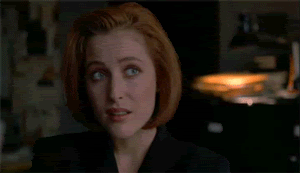
The FBI’s resident skeptic and forensic specialist, Dana Scully has dedicated her seemingly endless life to discovering the truth. About what? Who knows, but it’s out there. While chemistry isn’t her central science, Scully’s scientific expertise has helped solve nine seasons and two movies worth of cases. Speaking of chemistry, she has it in spades with longtime partner and UFO expert Fox Mulder. As one of the most popular female characters in sci-fi history, she has no doubt influenced many a young scientist.
- Honey Lemon – Big Hero 6
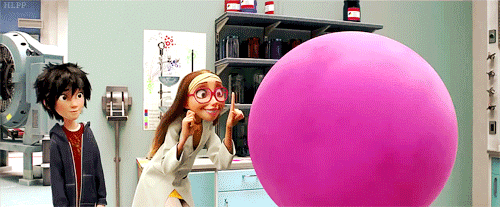
One of San Fransokyo Institute of Technology’s most promising chemical engineering students, Honey Lemon channels her talents into saving the world alongside her fellow students. Her weapon of choice is a special purse that dispenses “chem-balls,” brightly colored spheres that contain chemicals to aid her in combat. As sweet and bright as her name indicates, Honey Lemon is proof that you can be a girly-girl—and a brilliant chemist.
- Plankton – SpongeBob Squarepants

Sheldon J. Plankton is Bikini Bottom’s smallest and most vocal evil genius. As the owner and proprietor of the town’s least patronized restaurant, the Chum Bucket, Plankton spends most of his time in his lab concocting schemes with his computer wife Karen. Most of his plans revolve around stealing the secret formula for Krabby Patties from his rival, Mr. Krabs. While stealing someone else’s research is never encouraged, Plankton’s zealous dedication to his work is truly admirable.
- Walter Bishop – Fringe
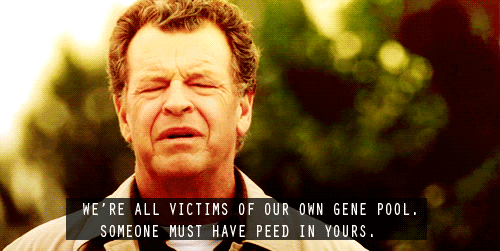
Continuing with our mad scientist theme, Walter Bishop is the world’s foremost expert on what is known as “fringe science.” His work as a biochemist at Harvard led him to work with the U.S. government, conducting experiments of an ethically questionable nature. Walter is best known for discovering an alternate reality through the use of LSD, where we meet his otherworldly counterpart, “Walternate.” He won’t win any awards for his scientific ethics, but Walter’s work quite literally changed the world(s), which is an impact factor in itself.
- Temperance Brennan – Bones

Dr. Temperance “Bones” Brennan is one of the world’s foremost forensic anthropologists. She is recruited by the FBI to help solve some of their most puzzling murder cases, a major shift from studying the bodies of ancient peoples. While her main objective is to figure out the why and how of death, Dr. Brennan employs chemistry to get her answers. No bones about that.
- Victor Frankenstein – Frankenstein
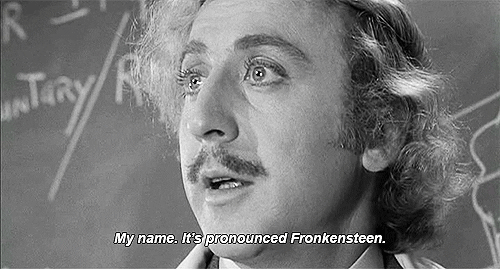
A universally known figure in science fiction, Victor Frankenstein is most famous for his zealous pursuit of the creation of life. He uses his chemical expertise to animate a creation of his own, mistakenly referred to as Frankenstein itself. Dr. Frankenstein is often portrayed as a tragic figure, but his accomplishments are unparalleled. Fun fact—Frankenstein author Mary Shelley is credited with the creation of science fiction as a genre.
Honorable Mention: Tony Stark
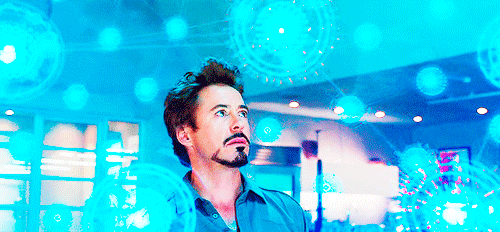
The self-proclaimed genius, billionaire, playboy, and philanthropist is an engineer at heart, but there’s really not much he can’t do when it comes to science. And there’s the whole superhero thing. When the palladium powering his Iron Man suit begins to poison him, Tony synthesizes a new element using his father’s research and some old-fashioned elbow grease. Adding to the periodic table definitely qualifies him as an inspirational chemist.